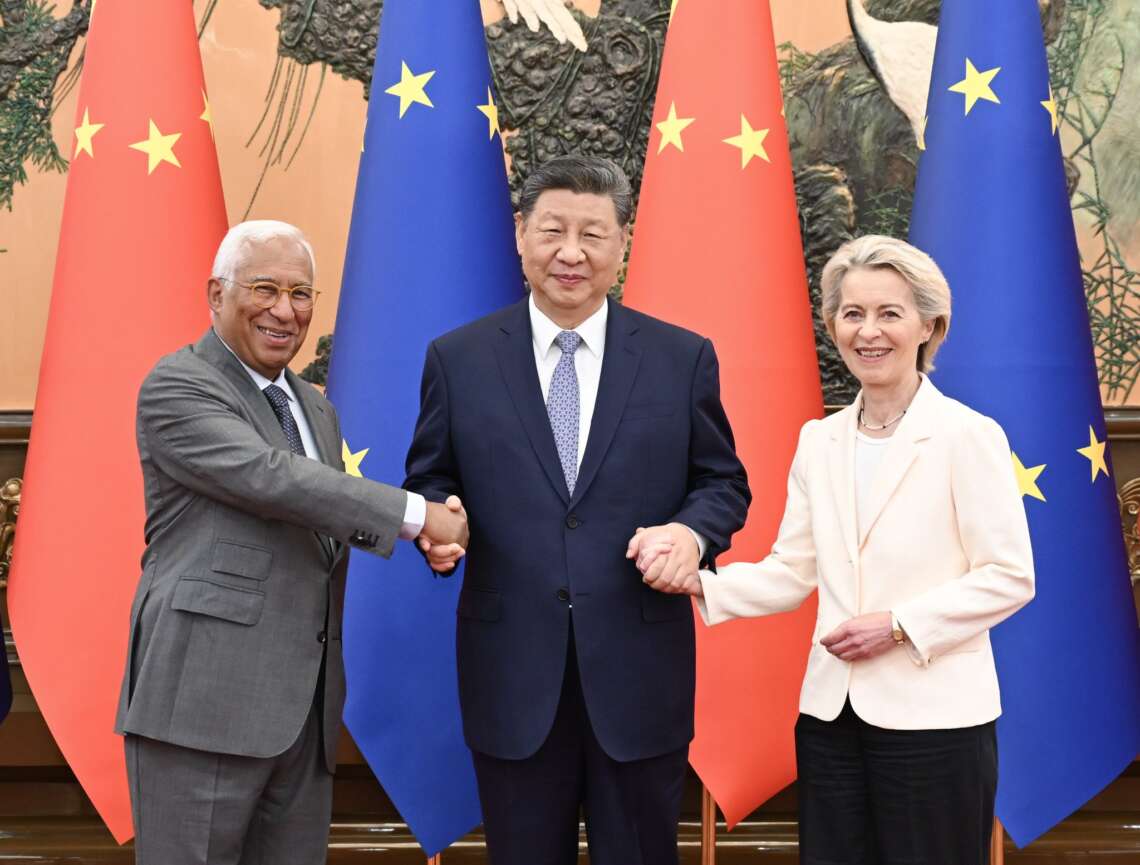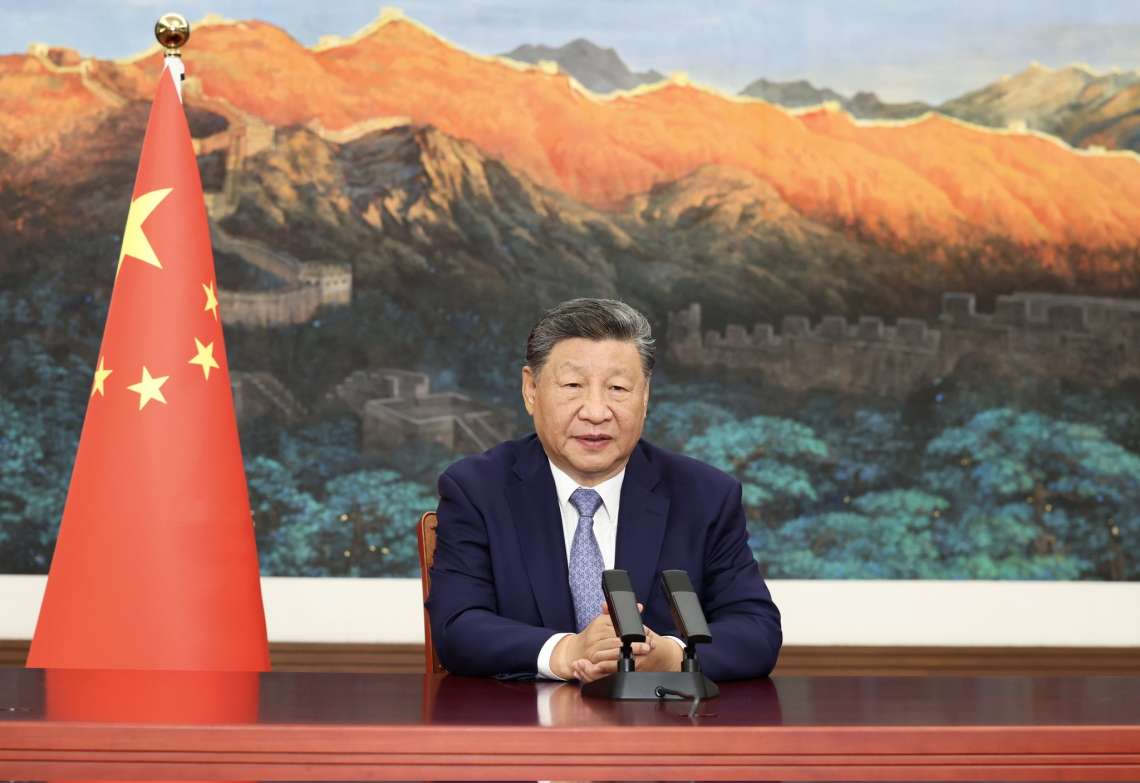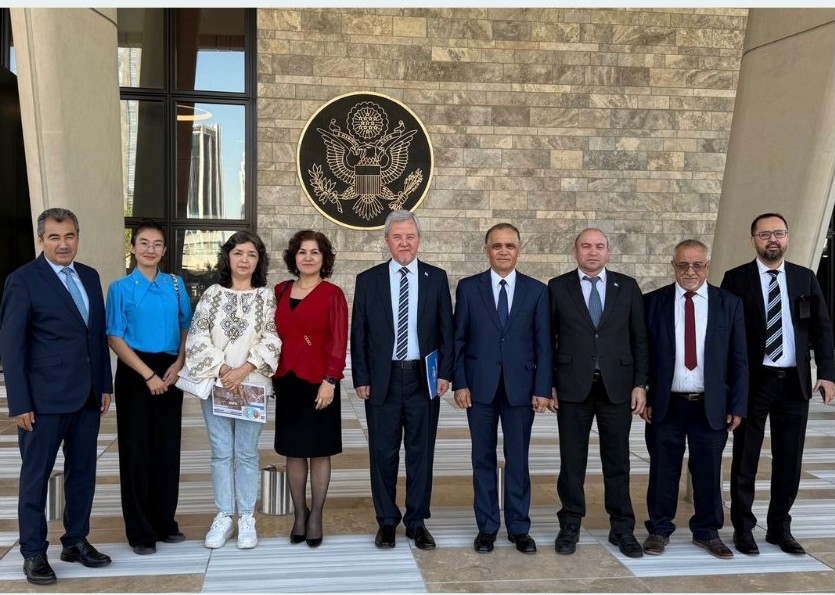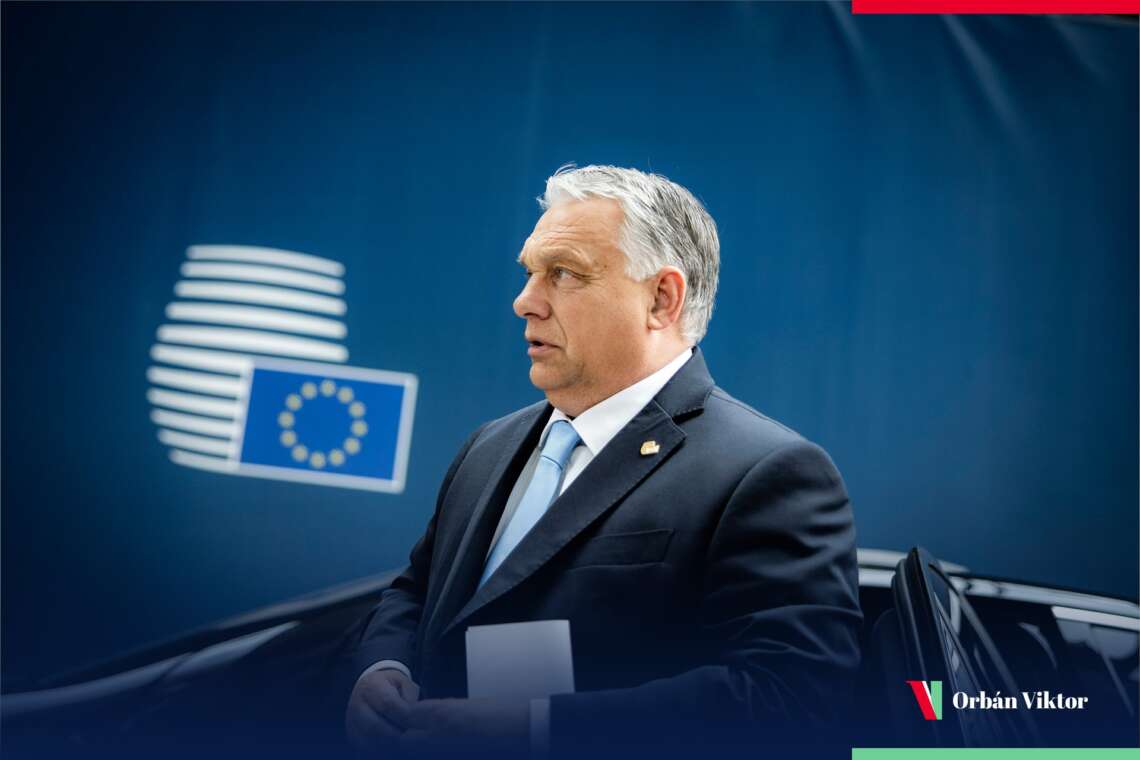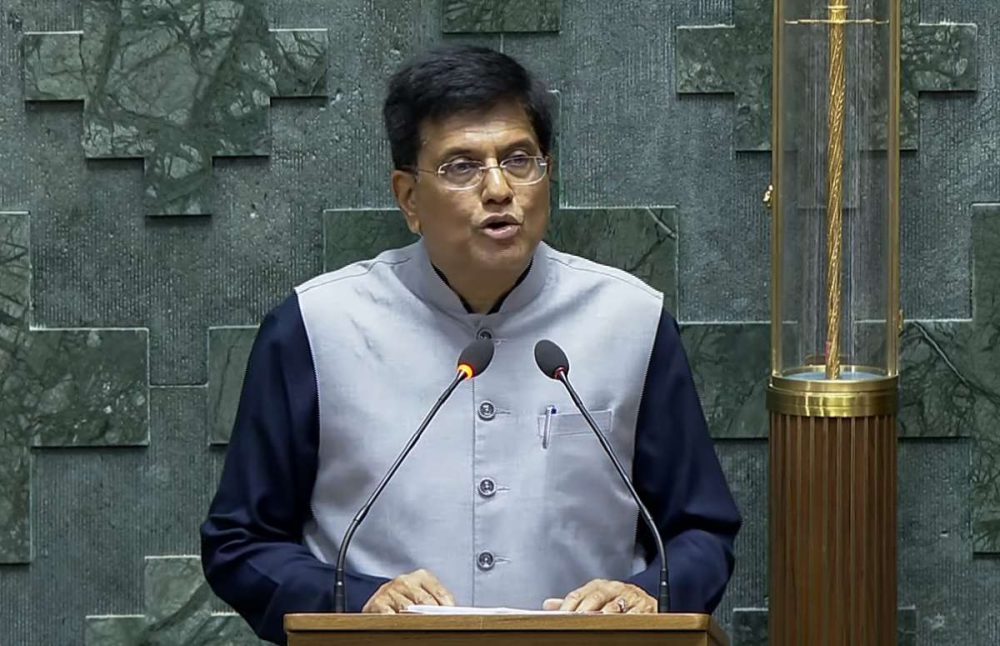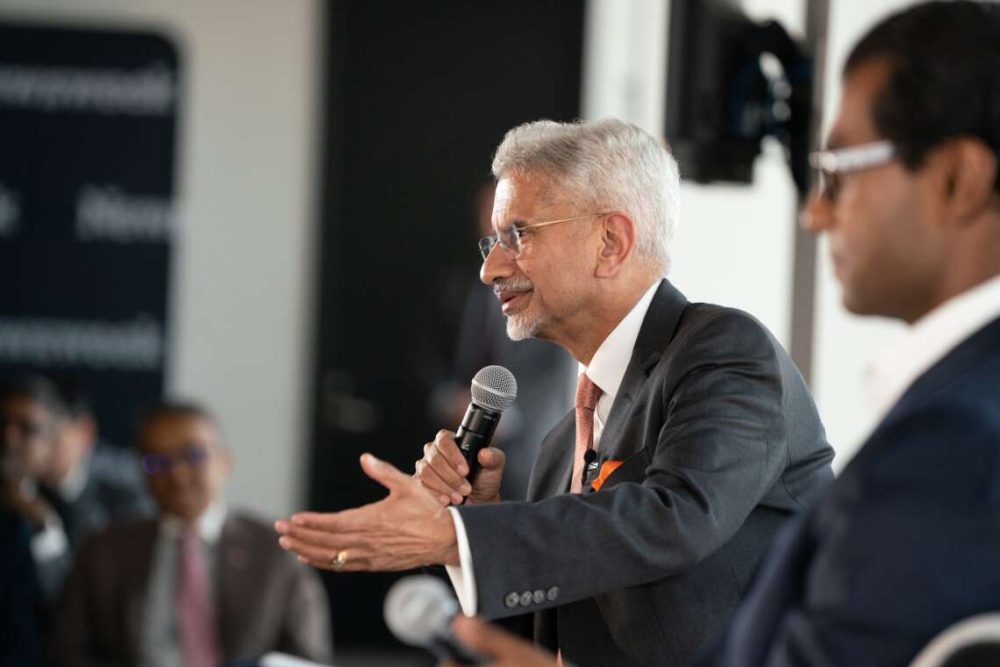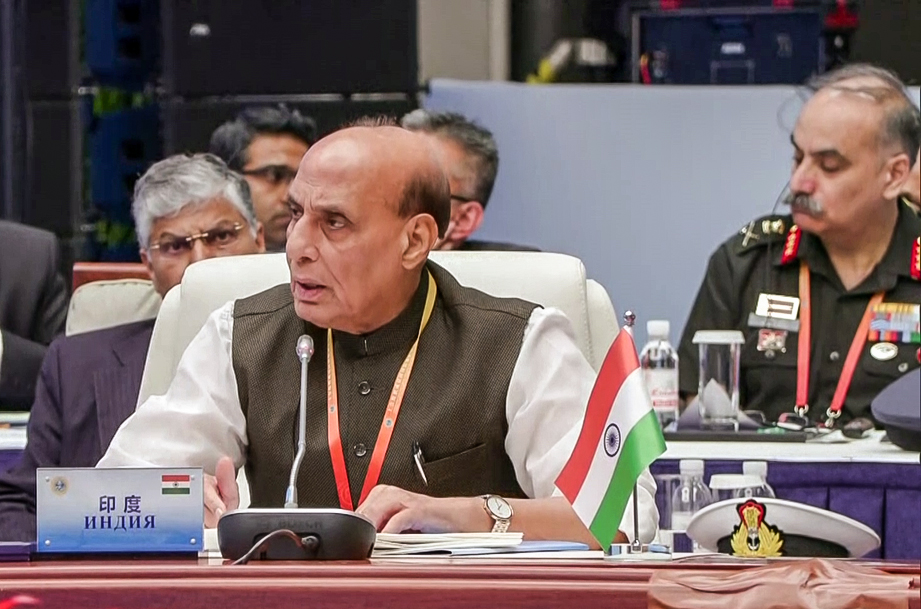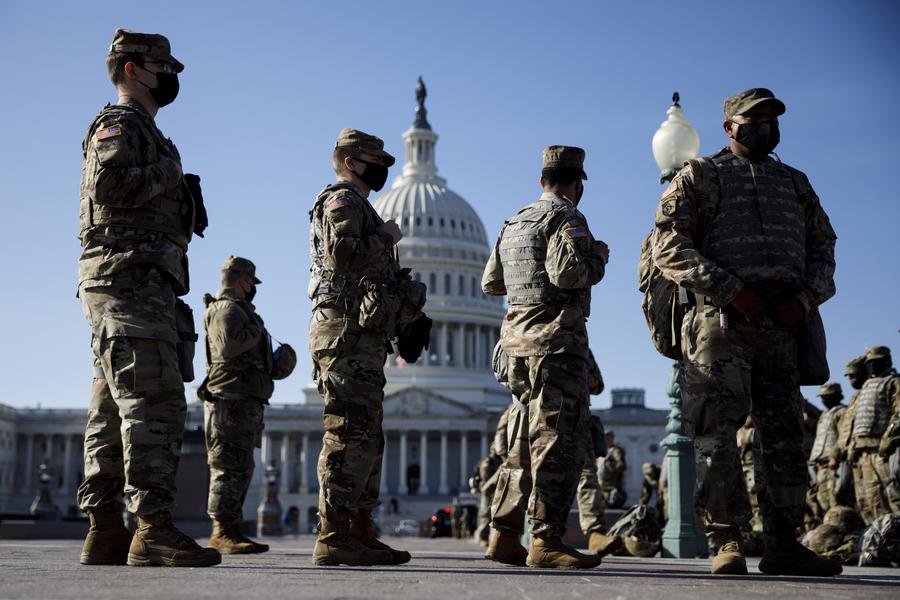Climate pact offers rare unity as trade rifts, Ukraine war, and economic tensions dominate EU-China summit
China and the European Union struck a rare note of unity on climate change Thursday, issuing a joint call for urgent global action during a high-stakes summit in Beijing otherwise dominated by deep disagreements over trade, geopolitics, and the war in Ukraine.
In a joint statement, the two economic powerhouses reaffirmed their commitment to the Paris Climate Agreement, urged greater emissions reductions, and called for stronger action at the upcoming COP30 climate summit in Brazil. The document described the current global environment as “fluid and turbulent” and stressed the need for major economies to show leadership, maintain policy stability, and increase efforts to combat climate change.
But while the climate pact offered a symbolic win, it did little to mask the widening rift between Brussels and Beijing. European Commission President Ursula von der Leyen and European Council President António Costa used their visit to push for a rebalancing of the economic relationship, arguing that Europe’s trade deficit with China—estimated at €300 billion ($350 billion) in 2023—was unsustainable. “As our cooperation has deepened, so have the imbalances,” von der Leyen said. “We have reached an inflection point. Rebalancing our bilateral relation is essential. Because to be sustainable, relations need to be mutually beneficial.”
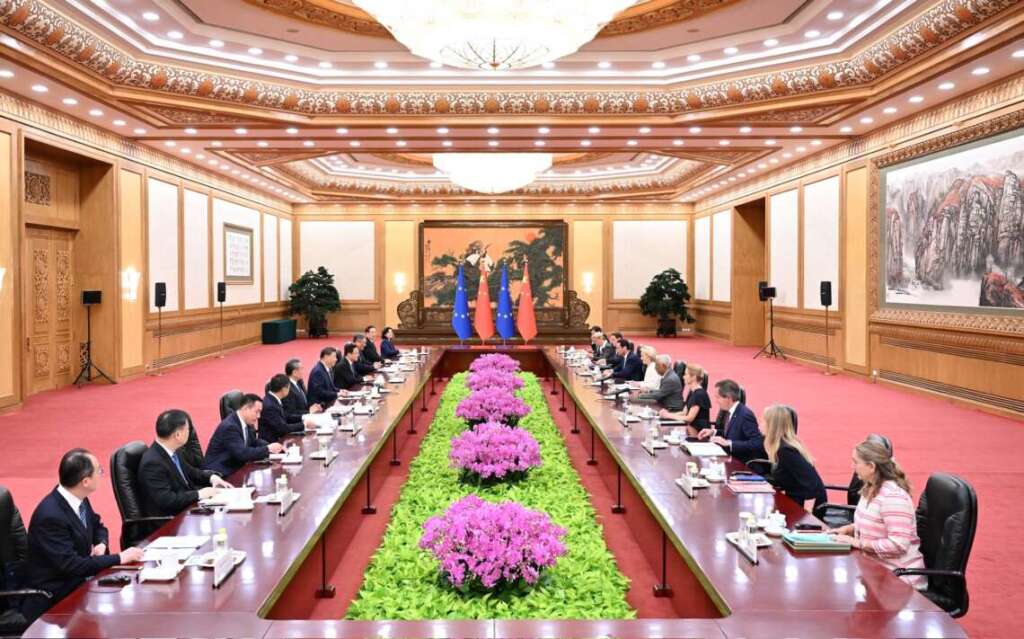
The summit, originally intended to span two days but compressed into a single session, reflected tempered expectations. The atmosphere was shaped by ongoing wars in Ukraine and the Middle East, global economic instability, and mounting pressure from a protectionist-leaning United States. Few believed either side would yield on the thorniest issues, and that forecast proved accurate.
Costa reiterated the EU’s call for China to use its leverage with Russia to help end the war in Ukraine—a plea European leaders have made repeatedly and with little effect. Chinese President Xi Jinping, in turn, said China and Europe should deepen cooperation to provide “stability in an increasingly complex world,” calling for both sides to “set aside differences” and “seek common ground.” Xi also expressed support for enhanced coordination on climate action but pushed back on what he framed as EU protectionism. “We hope the EU will keep its trade and investment markets open, refrain from using restrictive economic and trade tools and provide a good business environment for Chinese companies to invest and develop in Europe,” he said, according to state broadcaster CCTV.
Trade disputes loomed large throughout the talks. The EU delegation also raised longstanding concerns about Chinese cyberattacks, restrictions on the export of rare earth minerals, and human rights issues in Xinjiang, Tibet, and Hong Kong. Von der Leyen, in particular, faced a delicate balancing act, mindful of not appearing overly conciliatory toward China at a time when transatlantic ties with the United States are strained. “Europe is being very careful not to antagonize President Trump even further by looking maybe too close to China, so all of that doesn’t make this summit easier,” said Fabian Zuleeg, chief economist at the European Policy Center.
Despite a few symbolic gestures—such as China suspending sanctions on European lawmakers critical of its rights record—the summit ended without movement on key disputes involving trade imbalances, electric vehicles, or China’s stance on Russia. “Frustration from the EU was glaringly obvious after years in which its concerns have been largely ignored by Beijing,” said Noah Barkin, an analyst with the Rhodium Group think tank. He warned that the EU is likely to escalate its use of trade defense tools in the coming months, including new foreign subsidy probes and safeguard measures.
The EU has imposed tariffs on Chinese electric vehicles to shield its auto industry from what it considers unfair competition driven by Beijing’s aggressive subsidies. European automakers, which employ 2.5 million people directly and support over 10 million more jobs indirectly, are worried about the rapid expansion of cheap Chinese EVs into the European market. In retaliation, China launched investigations into European pork and dairy exports and slapped tariffs on French cognac. It also criticized new EU regulations targeting medical equipment and warned of future retaliatory measures.
China did agree to establish what von der Leyen described as an “upgraded export supply mechanism” to fast-track critical mineral shipments. However, the terms were not immediately clear, and analysts cast doubt on whether the new mechanism would prevent future supply disruptions. Barkin warned that rare earths could become a go-to coercion tool for China in future disputes.
The EU is also seeking to diversify its partnerships to reduce reliance on both Washington and Beijing. Just a day before arriving in Beijing, von der Leyen and Costa were in Tokyo launching a new trade alliance with Japan aimed at boosting economic cooperation and defending rules-based international trade. “Both Europe and Japan see a world around us where protectionist instincts grow, weaknesses get weaponized, and every dependency exploited,” von der Leyen said. “So it is normal that two like-minded partners come together to make each other stronger.”
Despite the rare climate consensus, the summit highlighted a relationship stuck in gridlock. With neither side prepared to yield on core economic and geopolitical issues, the talks closed with polite words and unresolved tensions—an uneasy truce between two powers trying to balance cooperation with confrontation in an increasingly fractured world.


